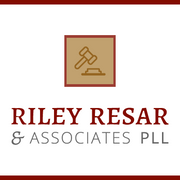Planning Your Estate? 4 Facts You Should Know About Wills & Trusts

Deciding how your belongings and assets should be distributed after you’re gone is the essential aspect of estate planning. Depending on your circumstances, your attorney will recommend writing a will or may suggest establishing a trust, which provides additional benefits that could save your heirs a great deal of time and money. Understanding the difference is key to creating an estate plan that will meet your needs.
4 Facts About Wills & Trusts
1. Wills Have the Power of a Court Order
After your death, the court will distribute your belongings according to the instructions in your will, even if remaining family members disagree with the written instructions. This ensures that your wishes are respected, and prevents costly litigation and family conflict later on.
2. Wills Are Public Record
 In most states, wills must be submitted to court, which makes them a matter of public record. Trusts, on the other hand, don’t have to go through probate, making them a better choice if you wish to keep the details of your estate plan private.
In most states, wills must be submitted to court, which makes them a matter of public record. Trusts, on the other hand, don’t have to go through probate, making them a better choice if you wish to keep the details of your estate plan private.
3. Trusts Allow You to Set Conditions on Inheritances
Many people choose to include conditions in their estate planning documents to protect the wealth they’ve accumulated. A trust allows you to decide when and under what circumstances your heirs receive their inheritances, instead of distributing it to them immediately.
4. Wills May Have to Go Through Probate Multiple Times
If you own real estate or other significant property in multiple states, an executor will likely have to submit your will to the court in each jurisdiction. If you have assets in several states, consider establishing a trust, which bypasses the entire probate process.
For nearly 30 years, the estate planning attorneys at Riley Resar & Associates PLL have provided compassionate, effective legal guidance to clients throughout the Lorain, OH area. They understand how important these critical decisions are, and will work to ensure your interests and those of your family are respected. Visit their website to learn more about their estate planning and other services, get more legal tips on Facebook, or call (440) 244-5214 to speak with an attorney and schedule a consultation.
About the Business
Have a question? Ask the experts!
Send your question

